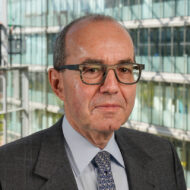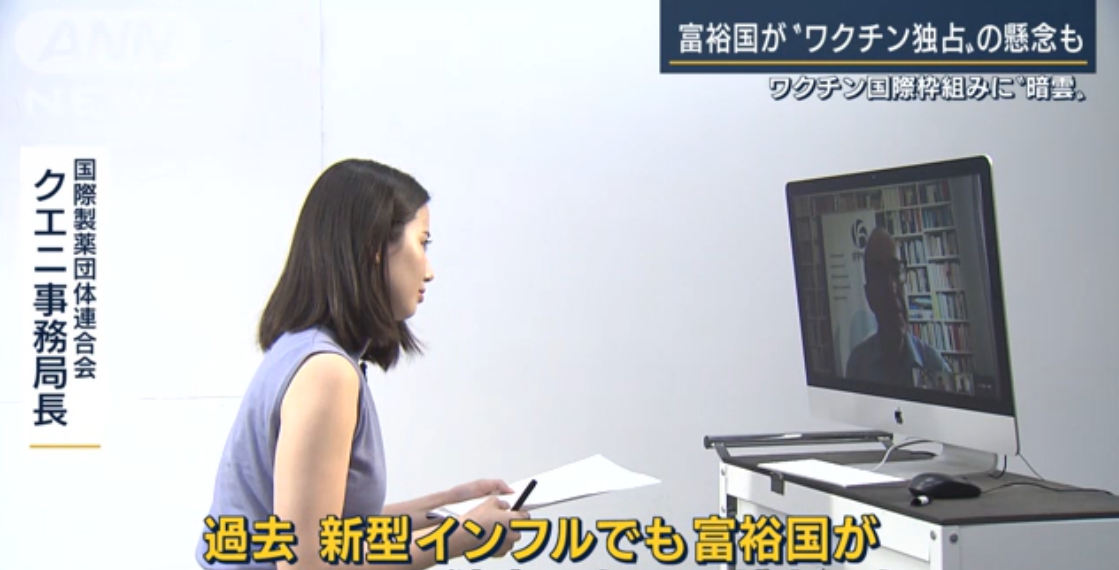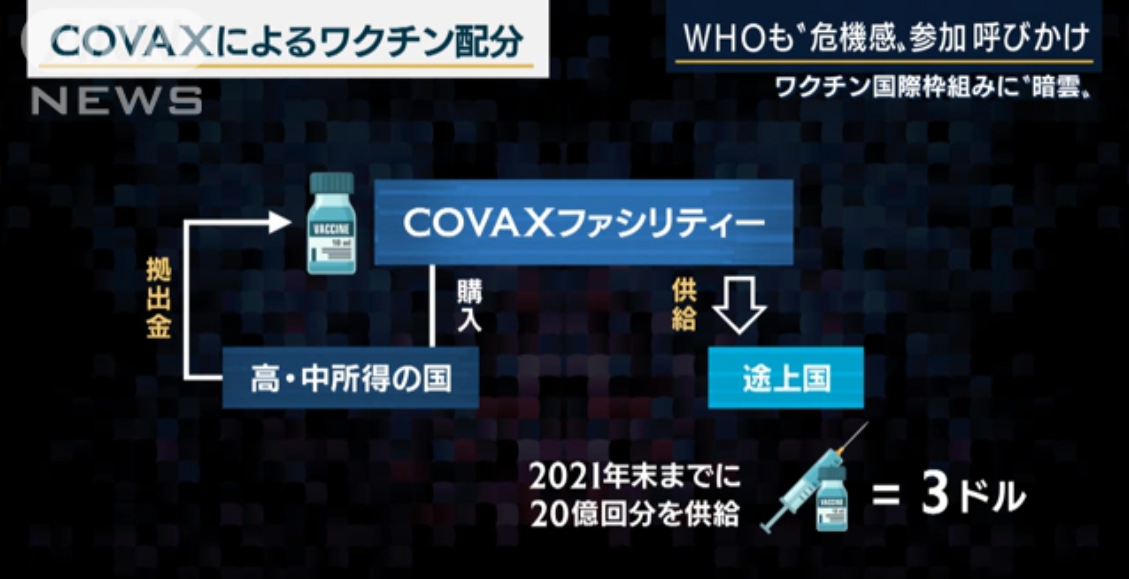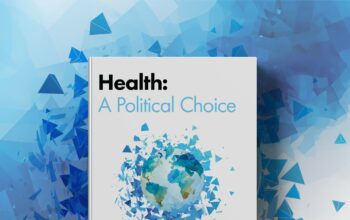Interview – Asahi TV Japan – Solidarity at the core of COVAX Facility
Interview – Asahi TV Japan – Solidarity at the core of COVAX Facility
Thomas Cueni, IFPMA Director General, spoke to Asahi TV in Japan on 18 September 2020 about COVAX and the importance of working together in order to guarantee a safe and effective vaccine in both richer and poorer countries. Here are top 5 points discussed (edited for clarity).
What are the merits of being members of the COVAX Facility?
The COVAX Facility has a unique objective of making sure that all countries have access to COVID-19 vaccines, not only high-income countries. The aim is that at least 20% of population in all participating countries will have access to a vaccine, making sure they reach those in need: people with underlying health conidiation, the elderly, and the healthcare workers. It’s an ambitious objective, for which 2 billion doses of vaccines need to be secured.
The COVAX Facility will only succeed if there is international buy-in from all countries. Of course, there is likely to be disappointment, with higher-income countries like the United States confirming they will not participate, and with other countries still yet to decide. As the deadline for signing up to the Facility is imminent, it is understood that more than 80 self-funding countries have signed up to support the facility.
Do you think everyone in the world will receive a vaccine?
Nobody wants to see the situation that occurred when rich countries bought 90% of the N1H1/swine flu vaccines. The core of the ambition in COVAX depends on solidarity between countries. Its essential to find a balance between high-income and low- and middle-income countries for the Facility to work. Not everybody in the world will be able to have access to the vaccine by 2021. The Facility will need to make decisions on who will get it first, irrespective of where they live (for example vulnerable people, elderly, doctors, nurses, etc.) and how the pandemic has affected each country will also have to be considered.
What do you think about vaccine nationalism?
As long as the pandemic continues in any part of the world, it remains a risk elsewhere. Nobody can feel safe until everyone feels safe.
Vaccine nationalism is a hindrance. At the same time, it is a reality. Governments have a responsibility to protect their citizens. With COVAX, I’m optimistic we will see a high degree of solidarity. Otherwise, we will fail.
Is cooperation the best way to overcome COVID-19?
It’s absolutely crucial. We can see how powerful it is within our industry. I’ve never seen so much collaboration and partnerships to speed up COVID-19 vaccine development: companies talking to other companies about scaling up manufacturing capacity, about technology transfer. Such collaboration is key for governments and international organizations. We really are in all this together.
The economic cost of this pandemic is enormous. The IMF estimates it at 375 billion dollars per month. The resources needed at global level for health efforts to contain COVID-19 represent about 10% of this. We need to better communicate about the economic and health returns of investing in ensuring fair and equitable access to COVID-19 vaccines. Support for the Facility should not be seen as an overseas economic development issue, it is about taking steps that will have a real economic impact.
Author








